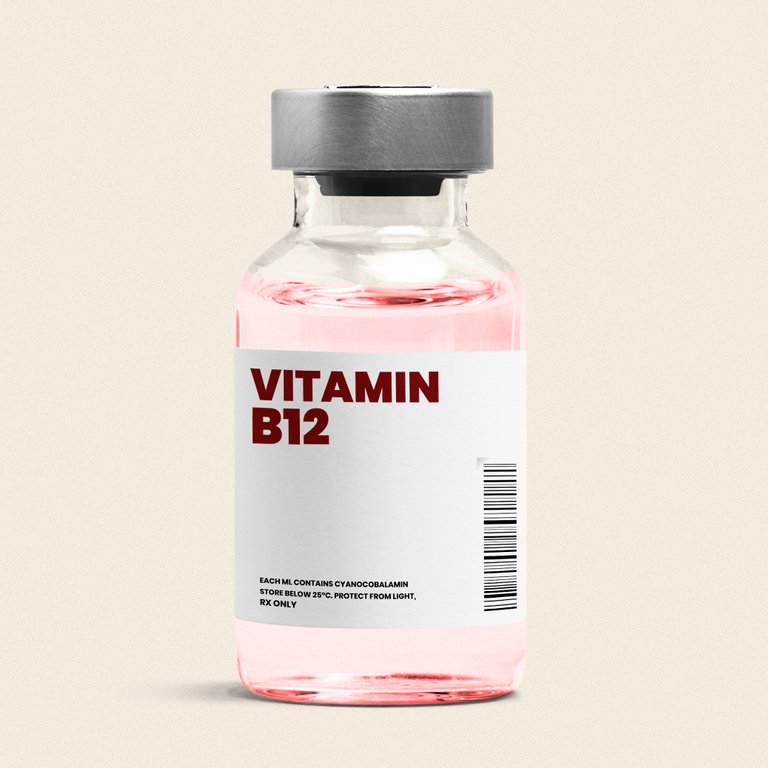Many individuals stopped eating all sorts of meat, as well as animal products such as milk, eggs, and anything else derived from animals. Now, I'm not going to go into the reasons behind this because everyone has their own, but there are certain health risks that should be addressed while making such judgments. One of the primary health issues is vitamin B12 deficiency, which may take years for symptoms to show, but why wait for them to appear before taking action when you can protect yourself from it before it occurs? So today's topic will be vitamin B12 and its deficiency.
Vitamin B12 overview

Health and wellness photo created by rawpixel.com - www.freepik.com
Cobalamin, commonly known as vitamin B12. A vitamin that may be obtained naturally through animal meals and products, but it can also be obtained through supplements.
Why vitamin B12 is important
Vitamin B12 is required in human bodies for a variety of functions, including:
- DNA synthesis, fatty acid synthesis, energy production and amino acid biosynthesis.
- important in the normal functioning of the nervous system via its role in the synthesis of myelin. So, deficiency may lead to peripheral nervous system problems and maybe nerve damage.
Sources of vitamin B12

As previously stated, vitamin B12 may only be acquired naturally from animal meals and products such as fish, red meat, eggs, dairy products, yogurt, and milk. But how much should we need to take on a daily basis?
The appropriate amount of vitamin B12 for adults is 3-4 micrograms daily, while during pregnancy and lactation this amount might be increased to 5 micrograms daily.
Factors that leads to deficiency and its consequences
Before talking about deficiency, we need to mention that normal body stores about 3-4 mg of this vitamin, mainly in liver, so this amount is sufficient for 3 years if dietary intake ceased or if the ability to absorb the vitamin was lost.
Now back to deficiency, there are various reasons that could lead to vitamin B12 deficiency and those reasons are:
- Pernicious anemia is the commonest cause of vitamin B12 deficiency, which is an autoimmune condition where the body attacks the cells found is stomach and are responsible for the production of intrinsic factors, that bind with vitamin B12 in stomach, so it will be absorbed, leading to absorbance problems.
- Inadequate absorption may occur due to various reasons affecting different organs, for example:
- Gastrectomy where part of the stomach has been resected.
- Crohn's disease, which affects the intestines, particularly the ilium, that's where vitamin B12 is absorbed.
- Diet, yet it's not the major cause of vitamin B12 deficiency, yet it affects some people who follow strict vegetarian diet or the vegans who don't get vitamin B12 from any source.
Deficiency complications
.jpg)
Some of the vitamin B12 deficiency has been stated before in the post in-directly like, neurological problems that might occur in different ways for example it might be pins and needles (paresthesia), and this symptom is really helpful in diagnosing vitamin B12 deficiency, also memory loss, as it's kinda popular here, but I'm not sure if that's the case in the whole world, when people have bad memory we always advise them to check their vitamin B12 levels in case they have deficiency.
Stomach cancer is also another symptom that might occur due to deficiency from pernicious anemia.
In the end
For people who are vegan or following some strict vegetarian diet, they can still rise their vitamin B12 levels to adequate levels through supplements, and I mean by that the supplements that are specific for vitamin B12 and not multivitamins, and they aren't usually enough to cover the deficiency.
I would like to end the post here. Stay safe everyone, until next time!
References:
Overview
Importance
Sources and required daily intake
Deficiency causes
Short paragraph about Crohn’s disease
Deficiency complications
